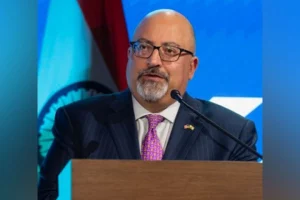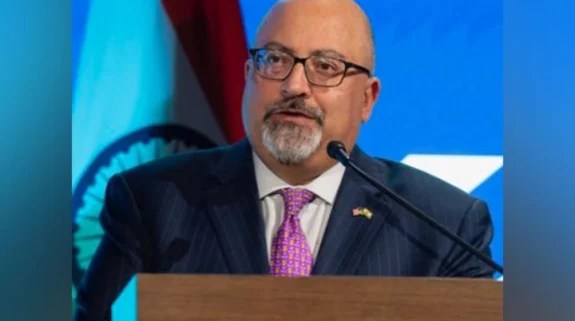The world could be staring at major terror attacks in the post Covid phase amid the US withdrawing its troops from Afghanistan and France from West Africa.
Even as terror attacks increased significantly in Africa, overall occurrences have remained “artificially” suppressed due to stringent lockdowns the world over, a recent report by the UN Security Council said. However, it warned that brutal attacks may have been already planned at various locations and they could be carried out once the travel restrictions ease.
Though terror groups such as the Islamic State in Iraq and the Levant (ISIL) and Al Qaeda have been facing several challenges including high attrition, threats have risen.
Funds assessed to be readily available to ISIL have also declined from estimates in the hundreds of millions of dollars to between $25 million and $50 million. However, the group is still left with substantial amounts and resources.
The report noted that the travel ban measures have played an important role in combating terrorism. “The Covid-19 pandemic has effectively slowed cross-border movement, and most Member States remain reluctant to reopen borders fully,” it said.
“The geopolitical developments especially in Afghanistan needs to be closely monitored and countries including India must increase their vigil to rule out any untoward incident,” BK Singh, former joint commissioner of Delhi Police, told India Narrative. “This is a fertile time for terror to bloom everywhere,” he said, adding that most governments have directed their efforts only in fighting the pandemic.
According to the Financial Action Task Force (FATF) the pandemic has led to an increase in crimes, including fraud, cybercrime, misdirection or exploitation of government funds or international financial assistance, which is creating new sources of proceeds for illicit actors.
During the crisis, more than 60 million new accounts have been opened using digital onboarding, FATF Executive Secretary, David Lewis said earlier. However, what is worrisome is that not every digital ID is reliable.
Also read: Why India needs to raise its game to counter the Islamic State (IS) in Africa
E-International Relations, which quoted data from the Armed Conflict Location and Event Data Project (ACLED), pointed out that in 2015 there were 381 attacks targeting civilians in Africa which led to 1,394 fatalities. “This number rose sharply throughout the years and by 2020 there were 7,108 attacks targeting civilians resulting in 12,519 fatalities,” it said.
The Sahel region in West Africa, rich in natural resources including minerals and natural gas, is turning to be the epicentre with an ongoing conflict between Al Qaeda and the Islamic State.
The French military mission — Operation Barkhane—has been present in the region since 2013 with the aim of keeping off the terror outfits and local militant groups that are linked to Al-Qaeda and ISIL. However, French President Emmanuel Macron has already announced that the current over 5,000-member Barkhane force would be reduced in a phased manner.
“In this new context, it is imperative to take immediate measures aimed at controlling their (terror groups) advances. Once the terror groups have a strong hub—wherever it maybe—they will become a threat to the whole world,” an official engaged with the security sector said.




















